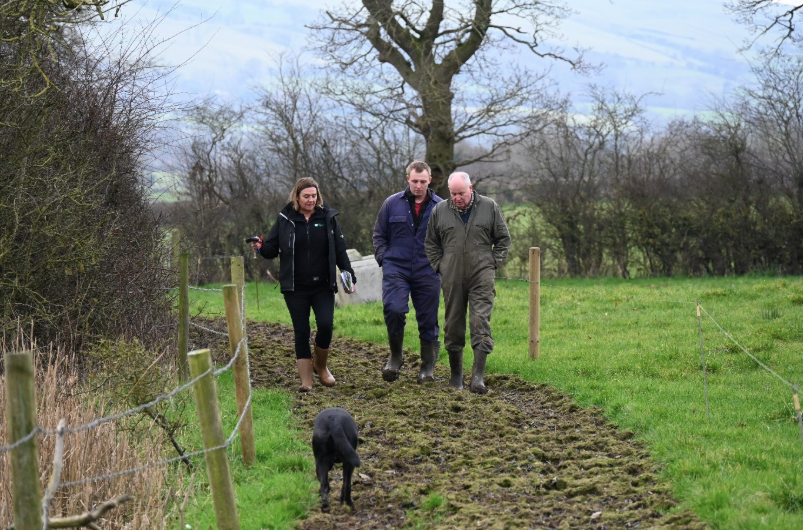
The Environment Agency is urging farmers to see inspections as opportunities to improve, not punishments, as part of a new campaign to clarify the process.
Agriculture remains the largest sector regulated by the EA, with over 4,000 farm inspections carried out annually across areas deemed most at risk of water pollution.
Acknowledging that receiving an inspection notice can cause concern, it has released a new blog and video guide aimed at easing farmers' fears.
Karen Price, a senior Environment Agency officer, said the on-farm inspections are "not here to catch you out".
She said: "We understand farming is complicated, a number of us officers here at the EA have a farming background and we are here to help.
"Our goal is to help you understand the regulations, assess your compliance, and, if needed, work with you to make the necessary changes to protect the environment."
Inspections are typically triggered by monitoring data, particularly where high or rising levels of pollutants like nitrates and phosphates are found in local rivers.
However, selection does not imply wrongdoing. Instead, the EA aims to offer guidance and collaborate with farmers, often working alongside initiatives such as Catchment Sensitive Farming.
Dairy farmer Rob Kynaston described his experience positively, saying: “Walking around with the Environment Agency, I think it's that fresh pair of eyes looking at it.
"We see things every day and... don’t really see the problems. It was good to have someone come around and say ‘you’ve got a problem here – do this and it’ll stop the problem,’ which was fantastic.”
Farmers will be contacted by phone, email or post with a proposed inspection date and a list of documents to prepare.
Useful materials include nutrient management plans with supporting soil samples, risk maps, drainage plans, and documentation related to nitrate vulnerable zones where applicable.
Providing these in advance can streamline the visit and allow more focus on the inspection itself, the agency says.
Inspections typically last between one and three hours depending on the size of the farm and the level of advice required.
If any non-compliance issues are identified, the EA says that an officer will discuss these with the farmer, agree on an action plan, and set a reasonable timeframe for corrective action.
